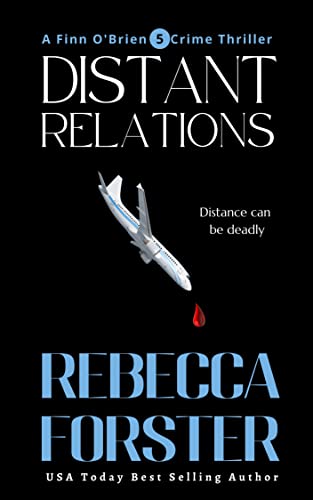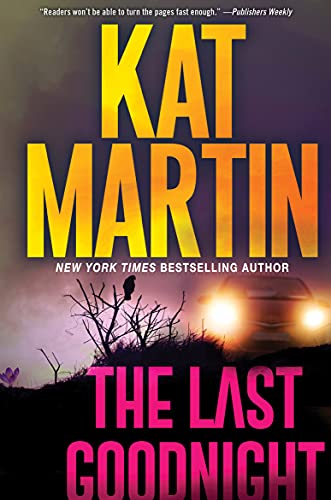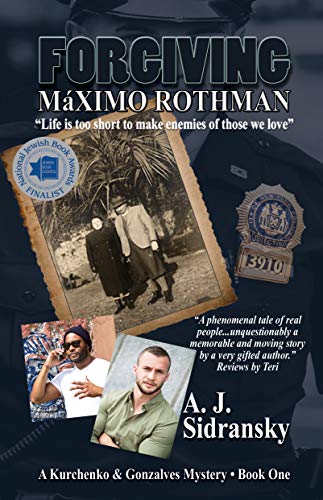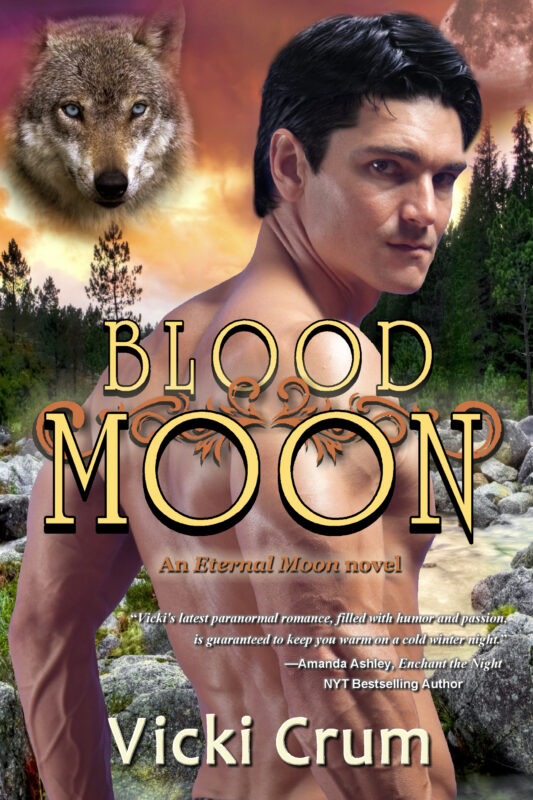Do or Do Not, There is no Try When it Comes to Building your Brand
May 12, 2020 by Denise M. Colby in category The Writing Journey by Denise Colby tagged as author branding, Denise M. Colby, encouragement, SEO MarketingSince May is all about Star Wars, I thought I’d start with a famous Yoda quote and apply it to a building your brand message:
“Do or Do Not, There is no Try”
Yoda
How does this apply to your author platform?
- We write or we do not write.
- We post social media or we do not post social media.
- We start building a brand or we do not.
When it comes to building your brand, there’s this fear of getting things wrong.
And sometimes this fear prevents us from doing anything about it.
But that’s exactly what I want to encourage you to do. Do something! Don’t just say you will try. And know, whatever you do, it doesn’t have to be 100% perfect. It’s most important for you to do.
Yes, I know, all the different variables to building your author brand can be stressful. But keep in mind, I’ve seen several small businesses evolve and grow in their online presence. It has opened my eyes to the fact that they did not get to their current place overnight. There’s not a magic switch that turns on everything perfectly. Most sites have evolved over time, trying things that work and don’t work and making adjustments as they work out the kinks.
Our author websites and social media are just like this.
We need to do some things first before we figure out if it works or not.
That’s what happened with my Marketing for Authors newsletter. I saw a graphic I liked and wanted to make it into the brand for Marketing for Authors. But no matter what I did, it wasn’t working the way I pictured it. And so I put off sending out my newsletter, or doing anything else for that matter. Not very business-minded, was it? So, I too am right in the thick of it, challenging myself with starting over and moving forward.
I’ve since chosen a simple design (thanks Canva!) and color scheme that I can incorporate into my training materials easily. And if I need to change some things as I go, I’m okay with that.
Here’s my new logo.

What do you think?
I’m super excited about it. I didn’t overthink it like I usually do, and I can incorporate the colors into my training materials. The only issue is when I print it on my home printer, the color comes out a little more blue than what it looks like on the screen. Since most of my stuff will be digital anyway, I’m moving forward with it. And boy does that feel freeing.
I understand how much establishing brand and building content is complicated and time-consuming. That’s where I want to help you in figuring out what works and to offer encouragement.
As a writer and a small business person, every little action can help propel your brand forward.
For myself, I’ve written my first newsletter and I’m ready to send it out (you can sign up for my free newsletter here). I’m also preparing to teach my first online class and give my first zoom interview. I’m trying not to over think things, but just take baby steps, one step at a time.
I hope to encourage you in the same way.
If interested in learning more about brand and SEO, take a look at some of my past posts:
Why it’s Important to Have a Blog and What to Write About
Why Link Building on Your Website and Blog is Important
Why SEO Should Matter To An Author
Or you can visit my website by clicking on the button below.
0 0 Read moreDo I Need a Pseudonym to Write Fiction?
February 28, 2019 by The Extra Squeeze in category The Extra Squeeze by The Extra Squeeze Team, Writing tagged as author branding, Pen Names, Pseudonym, The Extra Squeeze Team
Dear Extra Squeeze Team
Do I need a pseudonym to write fiction?

USA Today Bestselling author of 35 books, including the Witness series and the new Finn O’Brien series.
No, you don’t need a pseudonym to write fiction unless you write hard core erotica and you don’t want your mom to know. I used a pseudonym twice in my 30 year career. The first time I was writing for Harlequin and they contractually owned an author’s name. That meant if I wanted to write for anyone else I would have to leave the name–and any consumer base that had accrued to that name–behind. The second time was when I wrote my first legal thriller. The men were big back then–Grisham, Turow–and the publisher wanted readers to assume I was a man. I went by my last name but initials for my first. There was no ‘about the author’ in those books and the whole thing felt very odd. In this day and age when building a brand is your sole responsibility, own your name and build a loyal readership around it.

Developmental editor who has worked for twenty plus years with new and established authors of both fiction and non-fiction, traditional and indie.
Traditionally, publishing under an assumed name was a useful tactic when a writer crossed genres. A non-fiction author whose brand is based on expertise in hunting edible fungi would want to use a pseudonym to publish a steamy romance. A fresh identity to woo a new readership avoids any confusion, possibly even irritation from those readers whose expectations would not be met. A reader who gets a lusty countess when they’re expecting a description of the spotted Nigerian toadstool will not be a repeat reader.
Fiction writers often use pseudonyms to switch between fiction genres. Robert Galbraith jumps (beautifully, I might add) between wizards and detective fiction. Harry Potter fans are diehards so it was wise for J.K. Rowling to present her new detective fiction under a pseudonym. Otherwise fans might have cast a withering spell when their expectations were squashed. Cormoran Strike solving crime was a big step off brand from Harry Potter.
It wasn’t long before the public learned that Galbraith was J.K. Rowling—with a brand that strong anything she writes would be impossible to hide, and why hide it. With her pseudonym public knowledge readers knew what to expect. Rowling’s brand remains intact and Galbraith’s work took off with a new readership. Impossible to say how many of those new readers were enticed simply by the author’s name, but the work stands solidly on it’s own merits now.
Your brand may not be as mighty as Rowling’s but it is as important to your success. No reason not to use a pseudonym to publish your fiction and no reason not to be completely open about it. Supplement the marketing of the fiction by using your existing fan base and marketing tools to launch this new facet of your career. Share the pseudonym on your twitter feed, tout the cover on your pinterest posts, introduce the new personae and the new fiction on your blog. If both your established name and your nom de plume are connected to your brand then fans can seek out whichever genre fits their reading expectations. And your brand is strengthened.

PR/Business Development coach for writers and artists; CEO, Creative Center of America; member, Forbes Coaches Council.
From a branding perspective, maybe you do need a pen name to write fiction. Here are some questions you might ask yourself…if any of your answers are yes, lean toward a pen name.
Ask: Is my own name too difficult to say, spell, or remember? Does my own name confuse readers with other authors or commercial brands? Does the subject matter or the chosen genre of my fiction conflict with the character of the other brands that I am building? Do I have a plan to manage the transparency required to promote a pen name?
If you answered yes to any of the above questions, explore the pen name option with enthusiasm and care. Remember: You are the brand. The books you write are products of the brand. No matter what you do, you must be able to represent your brand and your products with authenticity and with transparency.
I once advised a mystery-writing dentist to use a pen name because his novel was filled with graphic violence and hot sex scenes. His novel directly conflicted with the business brand for his successful dental practice which was built upon his real name. The novel he had written revealed a side of the mild- mannered doctor that the public did not know and frankly might have been shocked to meet. In that instance, using a pen name separated the dentist from the writer so that both could be promoted to proper audiences. A pen name provided some distance between his dental business and his writing business. A plan for transparency was built from the start so that he could be honest and open if patients realized that their beloved doctor was also that wild novelist.
Similarly, you might want to consider a pen name if you are writing fiction in genres that conflict with each other. The motivating idea would be to help the reader know and trust the brand name when they search for your work. The bridge between who you really are and your pen name better be built from the start or it could become problematic unexpectedly with one Did you know social media post.

Cover designer and author of the fantasy series, The Fireblade Array
H.O. is missing again this month. We suspect a long long holiday is to blame.

0 0 Read more
Social Media and Your Author Brand
July 18, 2011 by A Slice of Orange in category Archives tagged as author branding, building a brand, Jenny Hansen, More Cowbell, Social Media, Twitter, Twitter hashtags, Writers In the StormI see many of you on Twitter and Facebook. I’ve been enjoying meeting even more of you on A Slice of Orange Daily, created by our very own Blog Mistress, Marianne Donley. I even see a few of you on LinkedIn.
Where are my OCC peeps conspicuously absent?
It’s pretty rare for me to see more than a few OCC’ers in my hashtag chats, with the possible exception of #myWANA. Either you’re hanging out somewhere else (that you’ll hopefully mention in the comments section) or you’re not using Twitter as fully as you could be.
Note: If you’re scratching your head over this hashtag business, please read this post on what Twitter hashtags are and why we need them.
OCC authors are very in-the-know about the changes sweeping through the publishing industry. I am so thankful to belong to a chapter with such amazing resources, and so many generous authors. We’re lucky to be on the cutting edge of this upheaval, so I’ll skip over that part since you all are pretty up to date.
If you don’t feel “up to date” and want to read more about the changing state of publishing, it’s hard to find a better resource than Kristine Kathryn Rusch and her publishing industry blogs.
This brave new world of publishing demands that an author build a brand.
What does that mean exactly? Simply put, your brand is the picture that pops into people’s mind when they hear your name.
For established authors, this picture is usually tied to one (or many) of your books. For the new or unpublished author, you need to get started on forming that picture in people’s mind as soon as possible. Participation in social media is one of the easiest ways to do this.
For more detailed information on branding, here are some of the best blogs I’ve found on the subject from people who say it far better than I do.
- Jami Gold’s How Do You Decide On Your Author Brand? – Part 1 and Part 2
- Jami has another wonderful post on Branding 101 – Online Brand vs. Author Brand
- An older post from leadership guru Michael Hyatt that still applies – 7 Ways to Build Your Author Brand Online
- Kristen Lamb’s must-read post on Bob Mayer’s Blog: Building An Author Brand.
- Bob Mayer discusses Social Media and the Writer in his Publishing Lessons series.
Particularly now that so many authors are going the Indie route with smaller independent publishers or even venturing into self-publishing for their first book, author branding is no longer a “nice to have.â€
Read the posts above and take a look at these two books: Kristen Lamb’s We Are Not Alone: A Writer’s Guide to Social Media, and Bob Mayer’s Warrior Writer. They will put you light years ahead of where you would have gotten on your own.
My personal observation is that people are seeking authentic connections and that, by branding themselves, an author is opening themselves up for connecting.
In my own experience on Twitter and both of my blogs, your Followers and your Tweeps become your friends. We spend time with these people, whether it’s chatting on Facebook, having a Worldwide Book Launch Party or sharing Sunday morning coffee.
Seemingly disparate people throughout the world are connecting through social media and enjoying the hell out of each other. It’s a beautiful thing.
Perhaps you don’t know where people are gathering on Twitter.
Fret no more…here’s the list of where my Tweeps and I hang out. This is your invitation to hang out with us. If you are hanging out somewhere else online, we want to know where that is!
Note: If I’ve missed any really cool hashtags, please let me know in the comments.
#myWANA – This love revolution started on Kristen Lamb’s blog (WANA stands for We Are Not Alone…I’ve linked to the book above)
#weWRITE – Hashtag started by Anna DeStefano and Jenni Talty based on their How We Write Wednesday Series. Note: There are no links allowed in this group – conversation on writing only…you’ll have to post your links elsewhere.
#PubWrite – these tweeps enjoy writing, sharing ideas and frustrations, and the occasional adult beverage.
#amwriting – writers from everywhere hang out here and encourage each other as they write. If this is your hangout, you might also enjoy http://amwriting.org/.
#amediting – writers from everywhere hang out here and encourage each other as they edit their works-in-progress.
#wordmongering – writers do timed sprints of 30 mins at :00 and/or :30 every hour. This is fun 24/7 and participants say they get so much writing done.
#Row80 – Hashtag started by Kait Nolan that I’m participating in. This is a writing challenge that lasts 80 days and requires that you publicly post your goal. For more details go here.
#nanowrimo – When November rolls around, the agony and the ecstacy of National Novel Writing Month can be found here. (Until then, we have Row80!)
What about you? Where do you commune with people on Twitter or Facebook (and why)? Are there groups of writers that you recommend above all others? Please share your discoveries with the rest of us!
~Jenny
http://jennyhansenauthor.wordpress.com
http://writersinthestorm.wordpress.com
Twitter: @jhansenwrites
Affiliate Links
A Slice of Orange is an affiliate with some of the booksellers listed on this website, including Barnes & Nobel, Books A Million, iBooks, Kobo, and Smashwords. This means A Slice of Orange may earn a small advertising fee from sales made through the links used on this website. There are reminders of these affiliate links on the pages for individual books.
Search A Slice of Orange
Find a Column
Archives
Featured Books
DISTANT RELATIONS
Finn's life is in the hands of a distant and deadly relation.
More info →THE LAST GOODNIGHT
With another body turning up, one woman is hot on the trail of a killer . . .
More info →FORGIVING MAXIMO ROTHMAN
Life is too short to make enemies of those we love.
More info →Newsletter
Contributing Authors
Search A Slice of Orange
Find a Column
Archives
Authors in the Bookstore
- A. E. Decker
- A. J. Scudiere
- A.J. Sidransky
- Abby Collette
- Alanna Lucus
- Albert Marrin
- Alice Duncan
- Alina K. Field
- Alison Green Myers
- Andi Lawrencovna
- Andrew C Raiford
- Angela Pryce
- Aviva Vaughn
- Barbara Ankrum
- Bethlehem Writers Group, LLC
- Carol L. Wright
- Celeste Barclay
- Christina Alexandra
- Christopher D. Ochs
- Claire Davon
- Claire Naden
- Courtnee Turner Hoyle
- Courtney Annicchiarico
- D. Lieber
- Daniel V. Meier Jr.
- Debra Dixon
- Debra H. Goldstein
- Debra Holland
- Dee Ann Palmer
- Denise M. Colby
- Diane Benefiel
- Diane Sismour
- Dianna Sinovic
- DT Krippene
- E.B. Dawson
- Emilie Dallaire
- Emily Brightwell
- Emily PW Murphy
- Fae Rowen
- Faith L. Justice
- Frances Amati
- Geralyn Corcillo
- Glynnis Campbell
- Greg Jolley
- H. O. Charles
- Jaclyn Roché
- Jacqueline Diamond
- Janet Lynn and Will Zeilinger
- Jaya Mehta
- Jeannine Atkins
- Jeff Baird
- Jenna Barwin
- Jenne Kern
- Jennifer D. Bokal
- Jennifer Lyon
- Jerome W. McFadden
- Jill Piscitello
- Jina Bacarr
- Jo A. Hiestand
- Jodi Bogert
- Jolina Petersheim
- Jonathan Maberry
- Joy Allyson
- Judy Duarte
- Justin Murphy
- Justine Davis
- Kat Martin
- Kidd Wadsworth
- Kitty Bucholtz
- Kristy Tate
- Larry Deibert
- Larry Hamilton
- Laura Drake
- Laurie Stevens
- Leslie Knowles
- Li-Ying Lundquist
- Linda Carroll-Bradd
- Linda Lappin
- Linda McLaughlin
- Linda O. Johnston
- Lisa Preston
- Lolo Paige
- Loran Holt
- Lynette M. Burrows
- Lyssa Kay Adams
- Madeline Ash
- Margarita Engle
- Marguerite Quantaine
- Marianne H. Donley
- Mary Castillo
- Maureen Klovers
- Megan Haskell
- Melanie Waterbury
- Melisa Rivero
- Melissa Chambers
- Melodie Winawer
- Meriam Wilhelm
- Mikel J. Wilson
- Mindy Neff
- Monica McCabe
- Nancy Brashear
- Neetu Malik
- Nikki Prince
- Once Upon Anthologies
- Paula Gail Benson
- Penny Reid
- Peter Barbour
- Priscilla Oliveras
- R. H. Kohno
- Rachel Hailey
- Ralph Hieb
- Ramcy Diek
- Ransom Stephens
- Rebecca Forster
- Renae Wrich
- Roxy Matthews
- Ryder Hunte Clancy
- Sally Paradysz
- Sheila Colón-Bagley
- Simone de Muñoz
- Sophie Barnes
- Susan Kaye Quinn
- Susan Lynn Meyer
- Susan Squires
- T. D. Fox
- Tara C. Allred
- Tara Lain
- Tari Lynn Jewett
- Terri Osburn
- Tracy Reed
- Vera Jane Cook
- Vicki Crum
- Writing Something Romantic
Affiliate Links
A Slice of Orange is an affiliate with some of the booksellers listed on this website, including Barnes & Nobel, Books A Million, iBooks, Kobo, and Smashwords. This means A Slice of Orange may earn a small advertising fee from sales made through the links used on this website. There are reminders of these affiliate links on the pages for individual books.









































